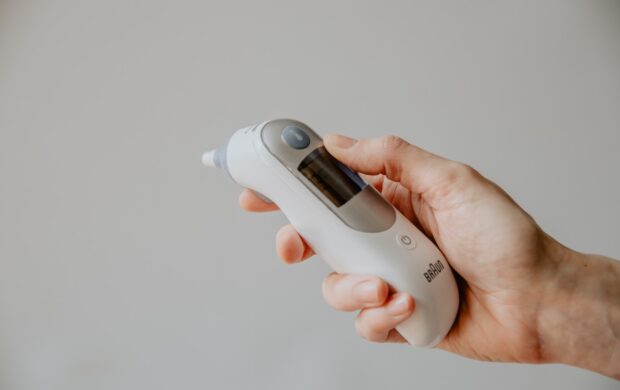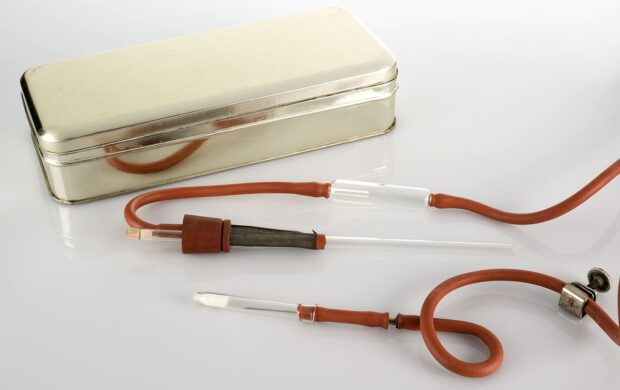A quiet revolution is underway. It’s made up of rumbling conversation, growing louder, and small shifts in societal perceptions, rules, norms.
I am talking about menopause.
Menopause is a word that’s still sometimes used in a derogatory fashion (we have all no doubt on occasion heard a reference to someone being “menopausal”, in connection to their irritability and unpredictability). And it’s one of the final frontiers for women in many ways. In most countries, we have won the right to vote, to participate in the workforce, to not be discriminated against based on our gender, and in many places we now have certain pregnancy and maternity rights as well.
But women continue to suffer through menopause in silence for the most part.
A third of women who have suffered from symptoms of menopause say they hid them at work, and many think there remains a stigma around talking about the subject. I recently asked my own mother about what menopause was like for her, and whether she suffered from all the classic symptoms like hot flashes. The answer was yes, but when I asked how she dealt with it and why we didn’t know anything about it at the time, she simply said she just got on with it, “because there was a lot of other stuff going on in life.”
But there is change underfoot.
For starters, there is a more and more open debate about this. The notion of perimenopause has only recently become more widely known and understood, notably the fact that it may start sooner than experts originally thought: it has been known to kick off just after the age of 40 for some women. This is leading many women to re-evaluate symptoms they previously couldn’t explain. I am not just hearing this from my friends. There are more and more public figures coming forward to talk about perimenopause and menopause, notably Michelle Obama recently talking about the pressure of having to keep going with busy jobs in professional clothes while having severe hot flashes or acute period cramps that “feel like a knife being stabbed and turned”. There are campaigns cropping up, pushing for more open debate and awareness about this issue, like the current #ownyourmenopause campaign by The Menopause Charity. All of this dialogue is slowly helping to shift the narrative about menopause, from something that used to be trivialized and seen as embarrassing, to something understood as a natural process affecting half the population.
Women are not just talking about menopause, they are also increasingly taking the issue to court: According to the latest UK data, there were five employment tribunals referencing the claimant’s menopause in 2018, six in 2019 and sixteen in 2020. There have been 10 in the first six months of 2021 alone. Perhaps most importantly, there is now a possibility of enshrining this into laws. Caroline Nokes, an MP who is leading an inquiry into menopause discrimination, recently stated that strengthening legislation on this front shouldn’t be ruled out. Specifically, the question is whether menopause should be a protected characteristic under the Equality Act, which would put it on the list alongside age, disability, gender, race, religion, and a whole host of other things based on which discrimination is illegal.
Why does this matter?
Menopause can affect women’s ability to perform in the workplace, and it deserves adequate medical attention and care. If women are not properly supported through menopause, they are not able to participate in public life on equal terms. Not to mention that it is an economic issue: women of menopausal age are typically at the peak of their careers. Women aged 50 to 64 are the fastest-growing, economically active group in the UK, for example. If you are an employer, you want to retain this segment of the population in the workforce, not push them out through poor policies. And yet, 10% of women in the UK have left their jobs because of menopausal symptoms.
What does this look like in practice?
We are seeing more signals of this emerging. It looks like Carolyn Harris, deputy leader of Welsh Labour, launching a private member’s bill to try and make hormone replacement therapy (HRT) exempt from NHS prescription charges in England, as is currently the case in both Wales and Scotland. It looks like Channel 4 putting in place a menopause policy to support its female employees, which includes giving women access to flexible working arrangements and paid leave if they feel unwell because of the side-effects. And it looks like The Menopause Café, which provides an open space for discussion about menopause – the necessary mental health support which is often overshadowed by more biomedical approaches.
Because surely calling menopause out as a key condition women face during their lifetime, and creating societal norms and rules that adequately recognize that, is a step towards creating a more just world.
Explore more
- A third of women hide menopause symptoms at work
- What Your Mother Never Told You About Health with Dr. Sharon Malone -The Michelle Obama Podcast
- The Menopause Charity
- Menopause at centre of increasing number of UK employment tribunals
- Equality laws could be changed to protect women in menopause, says MP
- Channel 4 launches menopause policy for employees
- Menopause Cafe
















Join discussion